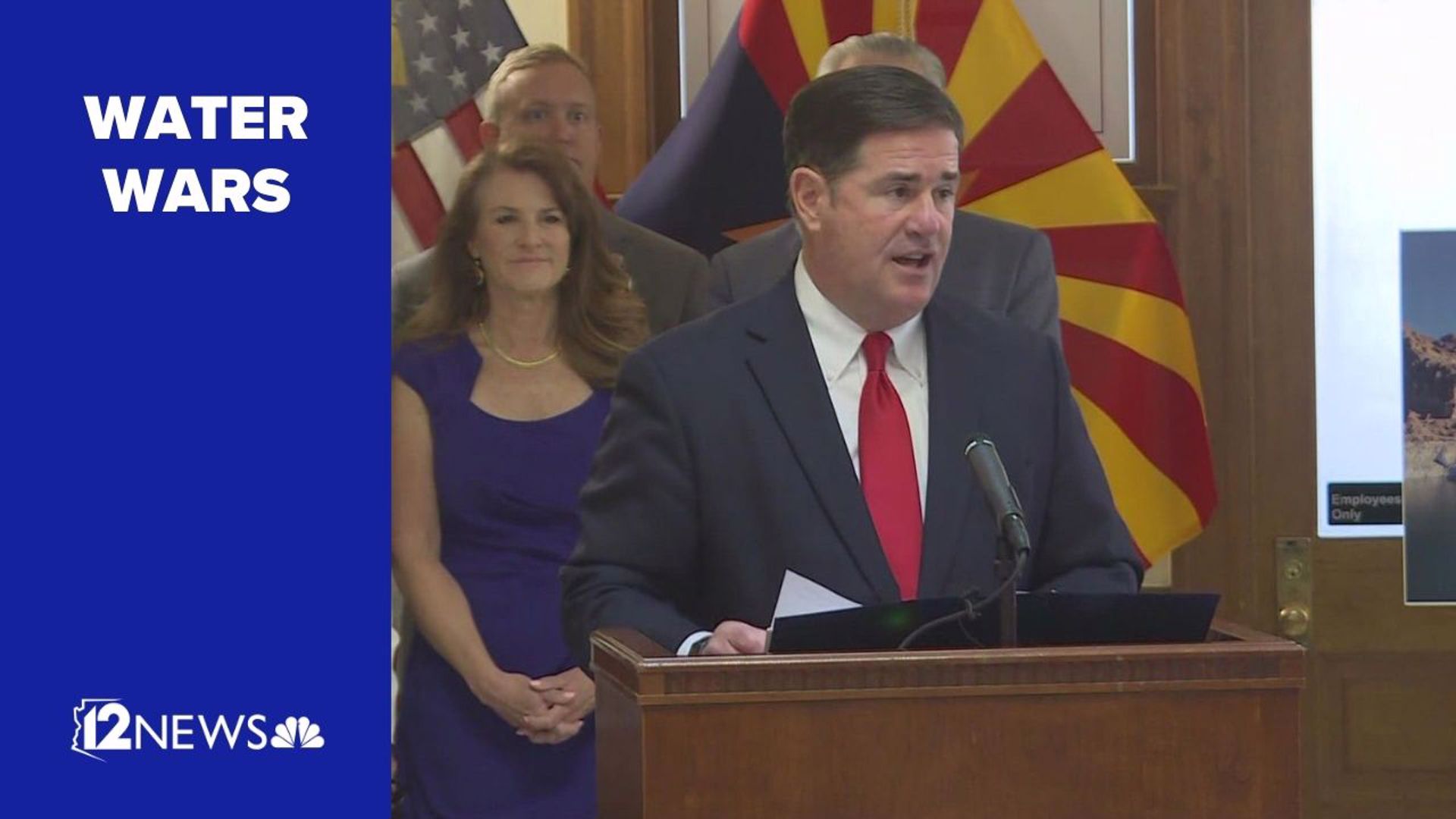PHOENIX — Arizona Gov. Doug Ducey signed legislation Wednesday that will provide $1.2 billion over three years to boost long-term water supplies for the desert state and implement conservation efforts that will see more immediate effects.
The legislation that was hammered out over months during the just-completed legislative session is viewed as the most significant since the state implemented a groundwater protection plan in 1980.
Climate change and a nearly 30-year drought forced the move, which comes as Arizona faces cutbacks in its Colorado River water supply and more loom. The Central Arizona Project canal system is already delivering less water from the river to metro Phoenix, Pinal County and Tucson, and federal officials are warning of even steeper cuts soon.
“These challenges made it necessary for us to act,” the Republican governor said at a signing ceremony in the historic Capitol rotunda. “So today we are taking action to do what the men and women of Arizona hired us to do — position our state for success today, tomorrow and for generations to come.”
The legislation Ducey touted in January to allow the Department of Water Resources oversee the investments morphed over the session and now gives an obscure state entity the authority to leverage and dole out a new $1 billion appropriation.
The entity is called the Water Infrastructure Finance Authority, which will now be a standalone agency with oversight from a new board and some from the Legislature.
Democrats got majority Republicans and the governor to agree to add $200 million for conservation; money that can be used right away for both agricultural efficiency and to cut water use in urban areas.
“Our state is confronted with the realities of climate change, an over allocated Colorado River and decreasing groundwater,” said Sen. Rebecca Rios, the Senate minority leader. “This bill ultimately creates a financial structure to assist with the diverse needs of both urban and rural Arizona.”
House Minority Leader Rep. Reginald Bolding ticked off a list of measures the new water conservation fund could pay for: groundwater recharge, drought resistant landscaping, watershed protection, and efficiency upgrades, as well as rooftop rainwater capture.
The longer-term investments range from pie in the sky to conservative. They include a canal and pipeline to move floodwaters from western Kansas to southern Colorado and into watersheds that end up in Arizona and a nascent plan to help fund a Southern California effort to wastewater and trade it for some of that state's river supply.
Ducey started off the year touting a massive new desalination plant that would augment the state's water supply, but did not mention that in Wednesday's formal remarks. Be he said on KTAR radio earlier in the day that he hopes to have a deal in place by the end of his term in January to build a plant, which is likely to be in Mexico and use water trades to free up more Colorado River water for Arizona. The plant could cost more than $5 billion.
Republican Rep. Gail Griffin called the legislation “historic" with an eye to doing much more than just augment the state's water supplies, but to recharge groundwater aquifers and cut water use to save it for later.
“This is an action plan, it’s just not going to sit on a shelf. We’re going to take it and do great things with it,” she said. “We have funding to bring new water into the state of Arizona. We have funding to address best management practices in our counties, in our cities.”
SCORCHED EARTH
12 News, along with sister stations across Western states, set out to understand the dire conditions Arizona and other states face as drought and wildfire continue to rage.

